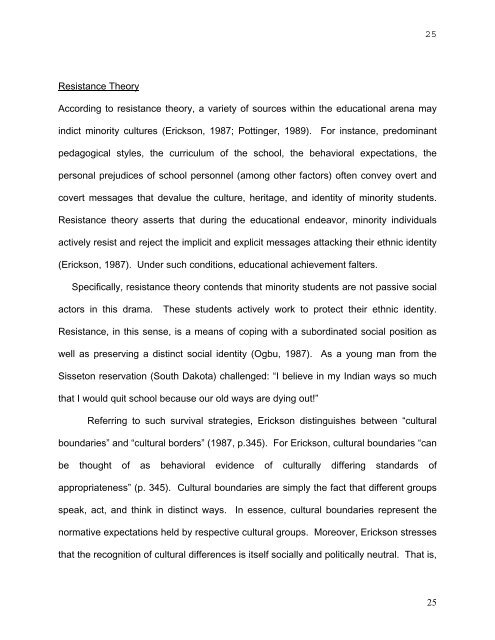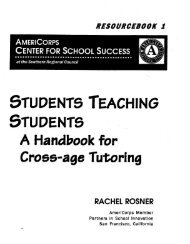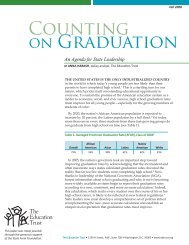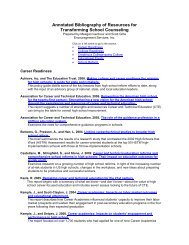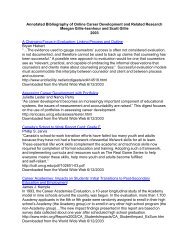Resistance Theory and the Transculturation Hypothesis
Resistance Theory and the Transculturation Hypothesis
Resistance Theory and the Transculturation Hypothesis
Create successful ePaper yourself
Turn your PDF publications into a flip-book with our unique Google optimized e-Paper software.
25<strong>Resistance</strong> <strong>Theory</strong>According to resistance <strong>the</strong>ory, a variety of sources within <strong>the</strong> educational arena mayindict minority cultures (Erickson, 1987; Pottinger, 1989). For instance, predominantpedagogical styles, <strong>the</strong> curriculum of <strong>the</strong> school, <strong>the</strong> behavioral expectations, <strong>the</strong>personal prejudices of school personnel (among o<strong>the</strong>r factors) often convey overt <strong>and</strong>covert messages that devalue <strong>the</strong> culture, heritage, <strong>and</strong> identity of minority students.<strong>Resistance</strong> <strong>the</strong>ory asserts that during <strong>the</strong> educational endeavor, minority individualsactively resist <strong>and</strong> reject <strong>the</strong> implicit <strong>and</strong> explicit messages attacking <strong>the</strong>ir ethnic identity(Erickson, 1987). Under such conditions, educational achievement falters.Specifically, resistance <strong>the</strong>ory contends that minority students are not passive socialactors in this drama. These students actively work to protect <strong>the</strong>ir ethnic identity.<strong>Resistance</strong>, in this sense, is a means of coping with a subordinated social position aswell as preserving a distinct social identity (Ogbu, 1987). As a young man from <strong>the</strong>Sisseton reservation (South Dakota) challenged: “I believe in my Indian ways so muchthat I would quit school because our old ways are dying out!”Referring to such survival strategies, Erickson distinguishes between “culturalboundaries” <strong>and</strong> “cultural borders” (1987, p.345). For Erickson, cultural boundaries “canbe thought of as behavioral evidence of culturally differing st<strong>and</strong>ards ofappropriateness” (p. 345). Cultural boundaries are simply <strong>the</strong> fact that different groupsspeak, act, <strong>and</strong> think in distinct ways. In essence, cultural boundaries represent <strong>the</strong>normative expectations held by respective cultural groups. Moreover, Erickson stressesthat <strong>the</strong> recognition of cultural differences is itself socially <strong>and</strong> politically neutral. That is,25


